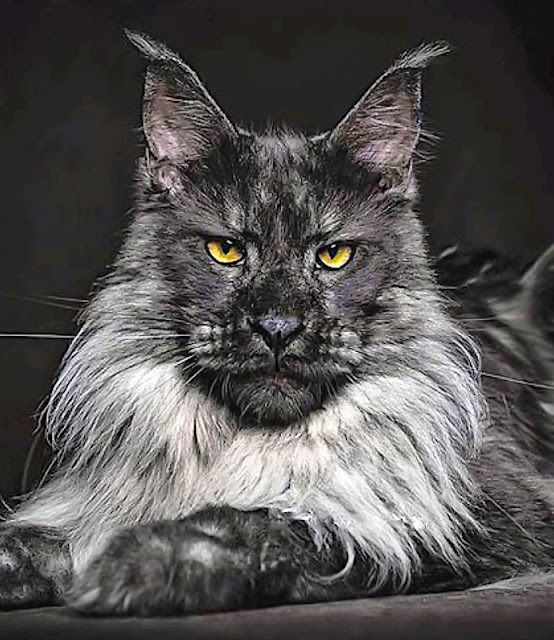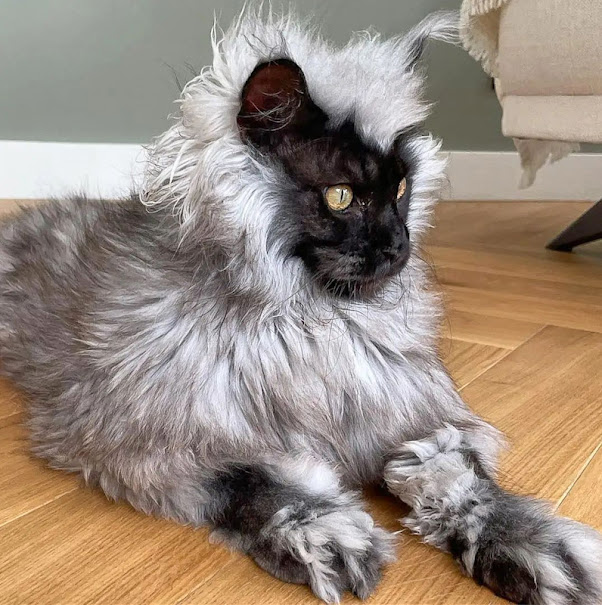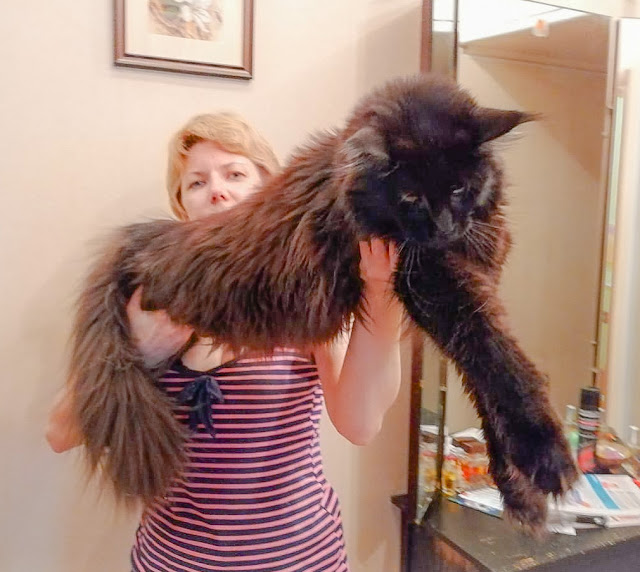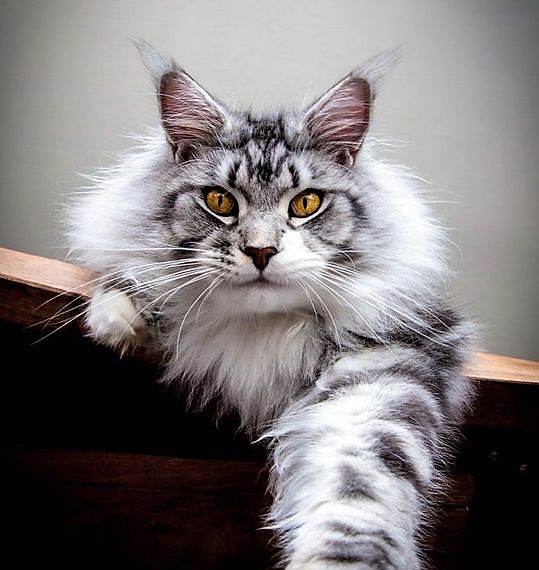14 thoughts about living with Maine Coon cats (Part 1)
I am reliant on a lady who sounds very nice and sensible who's made a series of three videos on what it is like to live with Maine Coon cats. Of course, what she says about the Maine Coon applies to all domestic cats in varying degrees. There must be an overlap.
She is an excellent cat caregiver with perhaps one shortcoming. Her home needs more 'catification' (Jackson Galaxy's word to mean environmental enrichment). And let's not forget that in her video she does not mention the inherited health issues which are likely to come.
 |
| Three well cared for Maine Coons. Screenshot. |
This is a nice video and I think it will interest those wishing to adopt a Maine Coon. Here are the 14 points she makes. I plan to address the other 2 videos in subsequent posts it you don't mind. I am working backwards!
I have lived with Maine Coons for about 3 weeks which does not really qualify me to write on this topic which is why I am relying on this lady.
- Good travellers - it is remarkable that the three Maine Coons that she and her husband live with all travel better than her non-Maine Coon (MC). They were all calm even on a very long journey. This emphasises, for me, what I've said before that this breed is calm! You see it all the time in various circumstances including trekking and at cat shows.
- Fur everywhere - no surprise as the MC is a hairy breed! You have to accept it and do your best to minimise the hair everywhere syndrome in the home suffered by cat owners. That means grooming a lot to remove loose and shedding fur and watching out for knots.
- Knots in fur - this is bound to happen in medium-longhaired cats and longhaired cats. This is an added responsibility for MC owners.
- Mane, under armpits or belly is where the knotting most often occurs. Comb and brush regularly. She cuts out the matts which can't be combed out but she rightly emphasises the need for great care and two people should do this: one to keep the cat still and the other to cut. The scissors should be vertical to the skin. Precision needed.
- The MC cross their front paws often when resting - this is a nice and interesting character trait. It does indeed seem to be an MC trait. Although you will see it in regular domestic cats too.
- Can be messy eaters - all cats can be messy eaters so I don't think that this is a particular MC trait to be fair.
- Can be dirty after using the litter box - this relates to the fact that poop can be caught up in their long fur:
- Poo stuck on toes or to their butt. Trim fur between toes and trim fur around butt. A constant clean up. At least once a week there are problems of this nature for this lady. She bathes them sometimes because of this as wipes can't do it. This brings to mind the responsibilities inherent with this breed.
- Sleep a lot - this is not unique to MCs but it is unique to full-time indoor cats. They often have nothing to do but wait for the next meal and occasionally cuddle with their owner. It is about maximising environmental enrichment.
- Love to cuddle and be near their owners - MC love to cuddle and be next to their owners. They follow their human around. Once again to be fair if there is a nice bond between cat and human this is a general domestic cat characteristic and not particular to the MC.
- Needy and crave attention - this may be a MC personality trait but I can tell that this lady is a very good cat caregiver and that she has a close bond with her threesome. They are going to demand some attention and cuddles because she is so nice to be with.
- Long and lanky bodies - yes, that is why the breed invariably wins the Guiness Word Records longest cat. Some people call them 'limousine cats'.
- They all have their own personality - despite all being members of the same popular breed they are all unique with their own personalities.
- They grow to adulthood very slowly, more so than other breeds and non-purebreds taking 3-5 years to become full adults. I have always been unsure about this claim because no one has explained to me why they are slow developers. What could be the reason? I have a feeling that it is exaggerated. In general, domestic cats reach adulthood at 12-18 months. There is a big difference.










Comments
Post a Comment
Please share your Maine Coon experiences.